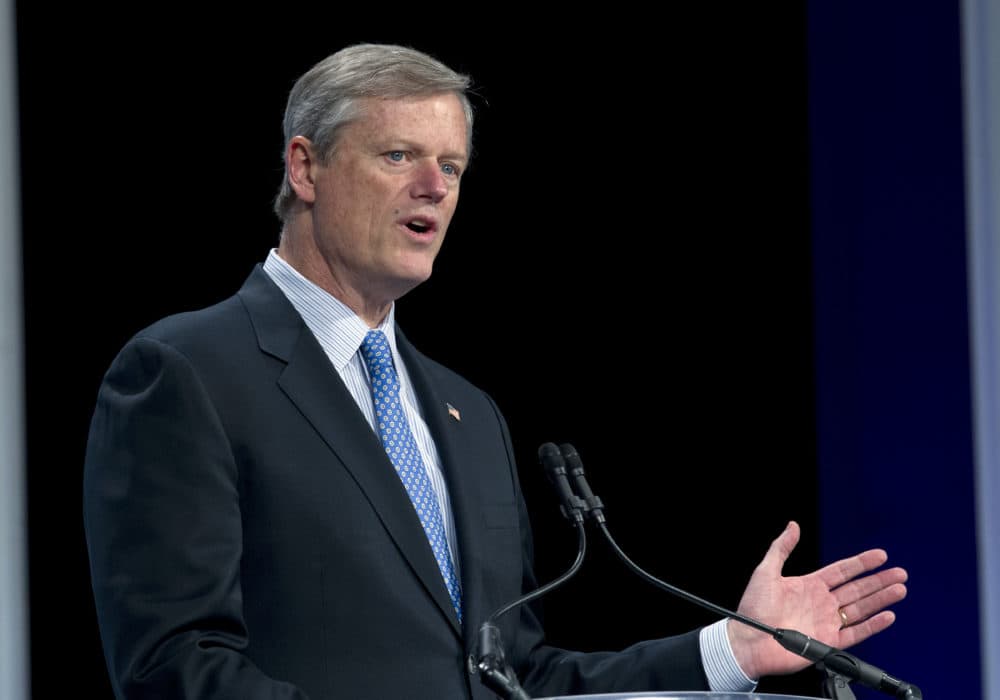Advertisement
Baker Will Sign Historic Increase In Funding For Public Schools

On Tuesday, Gov. Charlie Baker plans to sign into law a sweeping overhaul of the state's school finance system. The compromise bill would commit Massachusetts to phasing in billions of dollars in new state aid to schools over the next seven years.
The signing ceremony is set for 12:30 p.m. Tuesday at English High School in Jamaica Plain, according to an email sent to lawmakers from Baker's office, a copy of which was obtained by the News Service.
Lt. Gov. Karyn Polito, Senate President Karen Spilka, House Speaker Robert DeLeo, Education Committee Chairs Rep. Alice Peisch and Sen. Jason Lewis, and Boston Mayor Martin Walsh plan to attend the event.
The bill is based on legislation that passed both branches unanimously in October, more than a year after talks on a similar funding reform bill fell apart in the final hours of formal sessions of 2018.
The bill is aimed at closing persistent achievement gaps, and it provides new money to school districts to cover expenses associated with employee health care, special education, English language learners and students from low-income families. Those four areas were identified as major cost drivers in a 2015 state report that found the formula's foundation budget underestimates the cost of education by $1 billion a year.
School districts would be required to prepare plans detailing strategies they will deploy to close achievement gaps, with the first plan due in 2020. State education officials will review the plans and can require amendments on those that do not conform to the bill's requirements.
That accountability provision was the main difference between the House and Senate versions of the bills, and Peisch and Lewis have both said they feel the language they settled on strikes the right balance between state oversight and local control.
The bill does not appropriate money or include new taxes, leaving it up to lawmakers to make annual funding decisions as part of the budget process. "For us and for the Legislature... this is going to have to be sort of first-in when we make decisions about what the budget looks like," Baker said last week.